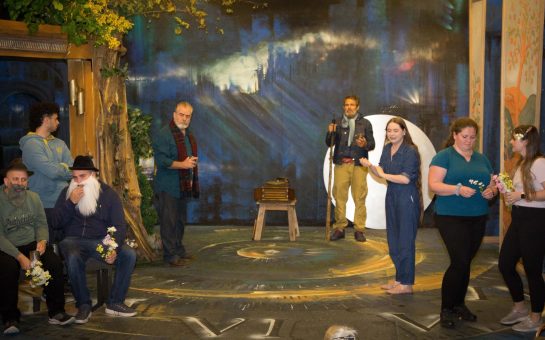For many young people, the engagement in Shakespeare and his work will be seen merely as a mandatory English GCSE module.
The accessibility of Shakespearean theatre has traditionally been regarded as a creative construct that appeals to high society, requiring strong educational and thespian resources in order to enjoy it.
With the pandemic seeing a significant drop in student attendance figures at school, it is important that we find new ways to engage younger audiences.
Co-director of Education at Shakespeare’s Globe, Lucy Cuthbertson, arrived at the company in September 2019, determined to revolutionise the way in which Shakespeare is taught and directed towards young people.
She explained: “I know education very well, I know what is possible and what is lost when it isn’t there.”
Around 60% of children in the UK rely purely on their school to access the arts, and for children from difficult backgrounds this proves even more challenging.
“If you’re bringing young people to the theatre for the first time, especially with Shakespeare, you want to show them something they’re never going to forget,” Cuthbertson adds.
“We need to promote a re-engagement of the new generation, give them an opportunity to see themselves on that stage.”
The initiative ‘Playing Shakespeare with Deutsche Bank: Macbeth’ has been established to create a Shakespearean production, giving away thousands of free tickets to state schools in London and Birmingham.
Macbeth was allocated as the chosen production due to its popularity in study within the GCSE curriculum, thus bringing more schools out to see it.
Cuthbertson and her team at the Globe want to ensure that they expose this programme to as many schools as possible.
“Shakespeare’s got an image problem in schools, students tend to think it’s boring, long, complex and give up trying to understand it
“Getting children onto a live play, especially in the Globe, nothing can beat that, they can be taken back in time.”
Throughout the pandemic the Globe ensured to keep active audience participation, from organising interactive family storytelling on Zoom to free online workshops.
Cuthbert stated: “Shakespeare can appear as scary or frightening for those that don’t know it,
“They [plays] can’t be like museum pieces, they have to speak to the times.”
Claudia Conway, Head of Press and Public Relations at Shakespeare’s Globe, emphasised the importance of translating Shakespearen theatre to a modern audience.
Conway, Cuthbert and their team wanted to ensure that public shows were also available for other schools that weren’t initially eligible for free performances.
Trying to entice schools why the theatre trip was worth it, especially during covid, provided even more of a challenge to Conway and the team. However with the recent announcement of restrictions easing, we approach what we hope are the final days of the pandemic.
Macbeth will be running from March 19th to April 16th, as well as family shows hitting the Sam Wanamaker playhouse stage throughout the summer holidays.
To see more of what Cuthbert, Conway and the team have going on at Shakespeare’s Globe, visit https://www.shakespearesglobe.com/whats-on.




